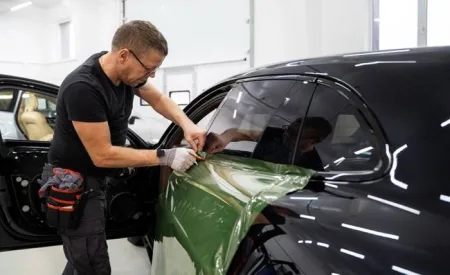In the modern economy, the automotive industry stands as a significant pillar, driven by consumer purchases of vehicles. Understanding why consumers buy vehicles and the impact of these purchases on the broader economy offers valuable insights, especially for stakeholders in the automotive and associated industries.
Consumer Motivations for Vehicle Purchases
The reasons behind consumers’ decisions to purchase vehicles are multifaceted. At a basic level, vehicles offer convenience and mobility, essential for personal and professional life in many areas. For many, a car is not just a mode of transportation but a necessity for commuting to work, transporting family, or conducting day-to-day activities.
Beyond practicality, vehicles can be seen as a status symbol. The make, model, and features of a car often reflect the owner’s lifestyle, success, and personal taste. The automotive industry has adeptly marketed vehicles as more than just transportation tools but as an extension of the individual’s identity.
Technological advancements also play a crucial role. Consumers are often drawn to newer models equipped with the latest features in safety, efficiency, and comfort. Environmental concerns have also shifted focus towards electric and hybrid vehicles, aligning consumer choices with broader social and environmental goals.
Economic Significance of Vehicle Purchases
The automotive sector is a major component of the global economy. Vehicle manufacturing and sales generate significant revenue and employment opportunities. This sector encompasses a wide array of businesses, from manufacturing plants and supply chains to dealerships and maintenance services, creating a vast economic network.
Furthermore, the automotive industry is a key driver of technological innovation. Investments in automotive research and development spur advancements not only in vehicle technology but also in related fields such as battery technology, artificial intelligence, and manufacturing processes.
Impact on Government Revenue and Policy
Vehicle purchases contribute significantly to government revenues through taxes and fees associated with purchasing, registering, and owning a vehicle. These revenues support essential public services and infrastructure, including road maintenance and public transportation systems.
Additionally, the automotive industry often finds itself at the center of government policy and regulation, particularly concerning environmental standards and safety regulations. Governments around the world are increasingly incentivizing the production and purchase of eco-friendly vehicles, reflecting a commitment to reducing carbon emissions and combating climate change.
The Role of Financing and Economic Cycles
Financing options greatly influence vehicle purchases. The availability of affordable credit allows consumers to buy vehicles that they might not be able to afford outright, thus broadening the market. Economic cycles also play a role; during times of economic growth, consumers are more likely to invest in new vehicles. Conversely, economic downturns generally see a decline in vehicle sales, reflecting consumer uncertainty and tighter financial conditions.
When is the Best Time to Buy a Car
Grasping the optimal timing is a key aspect in the vehicle purchasing journey. For individual buyers, knowing when is the best time to buy a car can result in considerable cost reductions. Often, the close of the calendar year emerges as a prime opportunity, with dealerships providing attractive discounts to make room for new models. Additionally, promotional sales events and the introduction of new models can create favorable circumstances for securing deals. Businesses too can leverage timing to their advantage, strategically planning fleet purchases to align with market conditions and benefit from bulk purchase discounts or advantageous financing options.
Global Supply Chains and Market Dynamics
The automotive industry is a global enterprise, with supply chains and market dynamics that span continents. Disruptions in one part of the world can have ripple effects across the industry, affecting vehicle availability and pricing. Understanding these global interconnections is crucial for both consumers and businesses operating in the automotive sector.
The Future of the Automotive Industry
Looking ahead, the automotive industry is poised for transformation, with electrification, autonomous vehicles, and shared mobility shaping future trends. Consumer preferences are likely to evolve in response, with implications for vehicle manufacturing, sales, and associated services.
Conclusion
The decision to purchase a vehicle is influenced by a complex interplay of personal needs, social factors, and economic conditions. For the economy, these purchases are more than just transactions; they drive a significant industry that contributes to technological innovation, employment, and government revenue. As the industry evolves, understanding these dynamics will be crucial for stakeholders to navigate the changing landscape. Whether considering when is the best time to buy a car or exploring the latest in automotive technology, the interconnection between consumer choices and economic impact remains a critical element in the automotive sector’s ongoing story.



